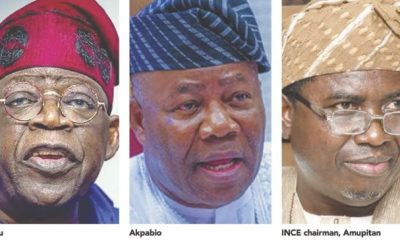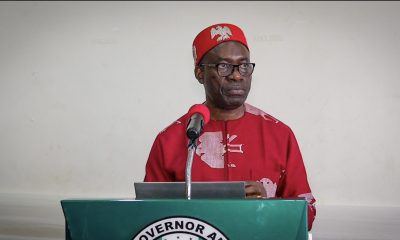As Nigeria faces economic challenges following the liberalization of the foreign exchange (forex) market, analysts are supporting the government’s proposed windfall tax on banks that have profited disproportionately from these reforms.
The tax is seen as a necessary measure to rebalance the economy and address the widening gap between the financial sector and other struggling industries, such as agriculture and manufacturing.
In 2023, President Bola Tinubu initiated significant economic changes, including the removal of fuel subsidies and the liberalization of the forex market.
These policies were intended to stabilize Nigeria’s economy, but their impact has been uneven. While banks have seen substantial gains from the revaluation of their foreign exchange assets, other sectors are grappling with rising inflation and borrowing costs.
Many financial experts believe that the windfall tax on banks is a logical step. Dr. Bamidele Ogundipe, a financial analyst, explains, “The profits banks are experiencing aren’t due to improved productivity or innovation; they’re driven by external factors, such as government policy. It’s only fair that a portion of these gains be redirected to support the economy.”
READ ALSO: Bank Directors oppose new windfall tax, call It “excessively burdensome”
The windfall tax, which focuses on realized gains from forex revaluations, has sparked discussions about fairness in the financial system.
For instance, banks with foreign currency loans issued when the Naira was valued at N435/$1 are now seeing repayments at the much higher rate of N1600/$1, resulting in substantial gains.
These windfall profits, however, contrast starkly with the struggles of industries like manufacturing and agriculture, which bear the brunt of the economic pressures.
“The windfall tax isn’t about punishing banks,” said economist Dr. Amina Ahmed. “It’s about ensuring that sectors benefiting from these reforms contribute back to society, particularly when other parts of the economy are suffering.”
The banking sector’s extraordinary gains stem largely from forex market liberalization, which led to a sharp revaluation of foreign exchange holdings. As banks experienced significant profits, other sectors were burdened with increased loan costs and operational challenges.
“It’s a clear redistribution of wealth from the real economy to the financial sector,” explained industrial economist Tunde Ajayi. “Manufacturers and farmers are facing higher costs, while banks are enjoying a windfall. The tax is a way to restore some balance.”
Nigeria is grappling with a widening fiscal deficit, exacerbated by stagnating oil revenues and rising debt.
The government is also under pressure to protect the most vulnerable citizens from the adverse effects of its economic reforms. A windfall tax on banks offers a fair solution by tapping into profits generated by the policy changes.
In the words of Dr. Ogundipe, “This is about fairness, not punishment. In times of economic transition, those who benefit disproportionately should help carry the load.”
The windfall tax, if implemented, will not only raise necessary revenue but also promote social equity and fiscal responsibility, setting a precedent for more balanced economic growth in Nigeria.

 Comments and Issues1 week ago
Comments and Issues1 week ago
 Comments and Issues1 week ago
Comments and Issues1 week ago
 Health7 days ago
Health7 days ago
 Comments and Issues1 week ago
Comments and Issues1 week ago
 Education1 week ago
Education1 week ago
 Football7 days ago
Football7 days ago
 Aviation1 week ago
Aviation1 week ago
 News4 days ago
News4 days ago

